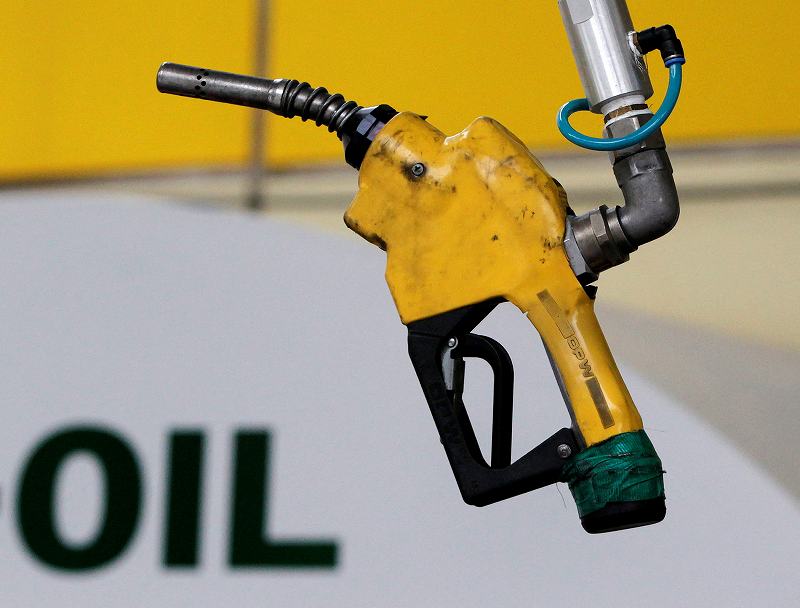
A gas pump is seen hanging from the ceiling at a petrol station in Seoul June 27, 2011.
11:57 JST, April 2, 2022
U.S.-allied countries on Friday agreed to their second coordinated oil release in a month to calm markets roiled by Russia’s invasion of Ukraine, the International Energy Agency said on Friday, without specifying volumes.
The silence on the size of the agreed release left crude prices largely unmoved, with benchmark Brent LCOc1 trading near $104 a barrel, underscoring supply concerns as releases from finite supplies struggle to make up for a loss of 3 million barrels per day (bpd) of Russian oil estimated by the IEA.
The announcement showed IEA member states’ “strong and unified commitment to stabilizing global energy markets,” the Paris-based group of 31 industrialized nations but not Russia said in a statement following an emergency meeting.
“Details of the new emergency stock release will be made public early next week,” the IEA said, a day after the United States pledged its biggest oil release ever.
IEA member countries did not agree on volumes or the commitments of each country.
“In light of the current situation … the participants in the IEA meeting agreed on the additional release itself, but they could not agree on the total volume and the allocation of each country,” Hidechika Koizumi, director of the international affairs division at Japan’s Ministry of Economy, Trade and Industry told reporters.
IEA last presided over the largest coordinated oil release in its history on March 1 of nearly 62 million barrels, about half of which was contributed by the United States.
European countries, heavily dependent on Russian oil and gas supplies as inflation hits multi-decade highs, committed to providing around a quarter of that release.
To fill a shortfall caused by sanctions and buyer aversion to Russian oil, President Joe Biden on Thursday authorized a release from the U.S. Strategic Petroleum Reserve of 1 million barrels per day of crude for six months starting in May, the equivalent of a total of 180 million barrels.
Soaring gasoline prices and inflation have drawn strong domestic political criticism of the White House ahead of mid-term elections in November.
Biden said U.S. allies and partners could release an additional 30 million to 50 million barrels.
A Reuters analysis of IEA data showed government-controlled oil stocks among members states was at its lowest since 2005 even before the March 1 release, while U.S. SPR levels have dropped to their lowest since 2002, government data showed.
Top Articles in News Services
-

Arctic Sees Unprecedented Heat as Climate Impacts Cascade
-

Prudential Life Expected to Face Inspection over Fraud
-

South Korea Prosecutor Seeks Death Penalty for Ex-President Yoon over Martial Law (Update)
-

Trump Names Former Federal Reserve Governor Warsh as the Next Fed Chair, Replacing Powell
-

Japan’s Nagasaki, Okinawa Make N.Y. Times’ 52 Places to Go in 2026
JN ACCESS RANKING
-

Univ. in Japan, Tokyo-Based Startup to Develop Satellite for Disaster Prevention Measures, Bears
-

JAL, ANA Cancel Flights During 3-day Holiday Weekend due to Blizzard
-

China Confirmed to Be Operating Drilling Vessel Near Japan-China Median Line
-

China Eyes Rare Earth Foothold in Malaysia to Maintain Dominance, Counter Japan, U.S.
-

Japan Institute to Use Domestic Commercial Optical Lattice Clock to Set Japan Standard Time

























